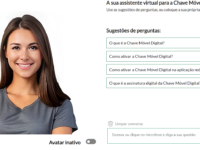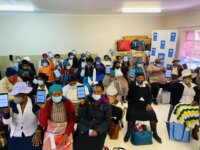The Virtual Assistant project targets every person that may come to require information on how to access and make use of Portuguese Public Services. It takes the shape of an AI driven ChatBot (powered by ChatGPT3.5), designed on Azure Cloud AI architecture as a public/private partnership. Our Innovation demonstrates a clear use case for AI within the public sector, and it was developed to address effectiveness, efficacy and quality issues inherent to the provision of public services.
Innovation Tag: Experimentation
In order to continuously improve public policies and correct any deployment difficulties, the French Government has set up a data-driven steering system that allows it to monitor the results of more than 60 priority policies across all departments in its territory. This system is embodied by an internal steering and monitoring tool (PILOTE) and a citizen information site presenting the results in open data.
The Government of Canada is experimenting writing existing laws and proposed regulations into code. Encoding rules allows us to run legal simulations in the regulatory drafting room, which helps us detect ambiguities, loopholes, and gaps in the rules that often go unnoticed. However, existing tools designed by and for programmers are not intuitive for rule-makers. In response, we set out to develop one – an open-source Rules as Code tool called Blawx.
AllergyPAL is a dynamic, first of its kind, free training tool which has been designed for SME’s; particularly those operating in hospitality and retail. The concept of creating a novel delivery method assisting business customers improve their understanding of Precautionary Allergen Labelling (PAL) was developed after identifying a key gap in sector standards. AllergyPAL provides users with immersive training through a combination of Point of View (POV) technology and gamification.
Baia Mare has developed a community-driven approach to decontaminate heavy metal-polluted land using plants, addressing a critical public health issue. The project combines phytoremediation, smart mapping technology, and a digital reward system to encourage environmental action and sustainable development. This innovative model empowers citizens, improves urban health, and creates new green economic opportunities.
Case Study
Overcoming Complexity in Public Services: Facilitating Access to the Bureaucratic Barriers…

INDECOPI receives over 363 complaints a day. In terms of bureaucratic barriers, last year, 71% of the complaints were incomplete or inaccurate. To address this, we introduced new templates guided by behavioural insights. These templates simplify the process for complainants and change how we request further data from complainants to get us better information and improve the public service by eliminating bureaucratic barriers.
The National Injury Insurance Agency Queensland in partnership with Queensland University of Technology is revolutionising support for those severely injured in accidents by offering a digital platform for easier access to services and self-management. This initiative provides a seamless, empowering user experience, enhancing independence and trust in public support systems. It's innovative because it transforms traditional, paper-based processes into an accessible, efficient digital solution.
A partnership of the University of Cape Town's Design Thinking School and the Western Cape Public Library Service sought to reconfigure the service delivery model of public libraries to draw in South Africa's young adult demographic. A pilot in Wellington (Cape Winelands) yielded three user-tested solutions to improve the library services model and effectively respond to the often neglected needs of young people not in employment, education, or training (NEETs).
UNDP has introduced a digital system that allows better reporting of public health data in rural communities in Lesotho. It consists of tablets and software designed to fit the needs of Village Health Workers, the Ministry of Health unit that collects the data, whose staff has low digital literacy. The initiative led to increased reporting frequencies (essential for monitoring fast-moving epidemics) and reduced costs; as a side effect, it increased the rates of digital literacy of the personnel.
Case Study
Most sustainable CLA of the Netherlands; Collective Employment Agreement as a instrument to boost…

Dutch Central Government (employer) and Trade Unions reserved €6 million to experiment with and include a wide range of (new) Green Benefits in the Collective Labour Agreement (CLA) to fight climate change. Through a unique, multi-party innovation process, over 75 civil servants and multilevel teams were trained in innovation and experimentation and jointly came together to develop green benefits pilots to be included in the CLA. The ultimate goal is to develop methods to involve all levels of…


